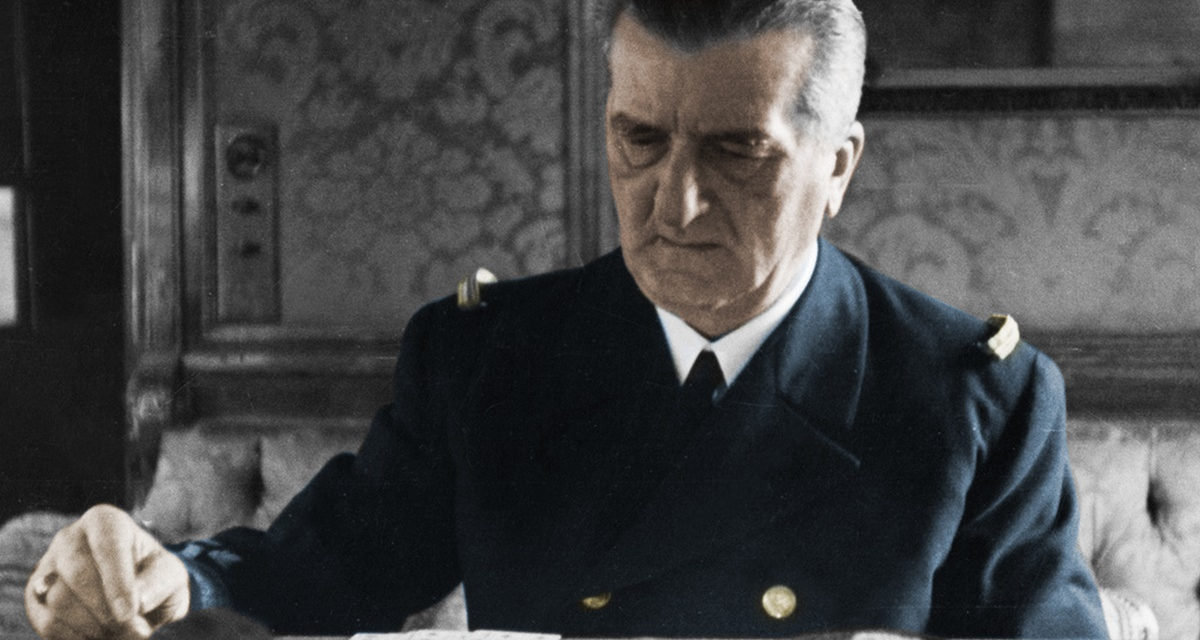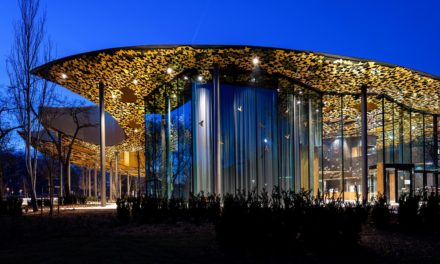His Excellency Miklós Horthy Vitéz, governor of Nagybánya, died in Portuguese exile 65 years ago on February 9. In 1957, Kádár's communist terror was rampant, half of the country was beaten, volleys of fire were ordered, and hundreds of executions took place, mostly in reference to his name. The revolutionaries were labeled as horthyst scum who want to turn back the wheel of history and restore the pre-war system.
Of course they wanted it! A multi-party system, which was evident under the governor's leadership. The restitution of legitimate property, the free exercise of religion, a country with a plural system, which also worked in the consolidation between the two world wars.
Miklós Horthy pushed the "intruding Grácia" away, although he could have done so, he never crowned himself king. But Hungary's form of government remained a kingdom, after experiencing a beggarly, disgraceful people's republic, a bloody council republic and a rabbit-sized republic in the span of a short year.
In the collapsing homeland, the rear admiral organized the National Army, established order with a strong hand, pushed the Czech, Romanian and Serbian armies that were plundering the country beyond today's borders, tacitly supported the uprising in Western Hungary, thanks to which Sopron was able to remain a Hungarian city through a referendum. He eradicated the nests of Bolshevist terror. As a result of his activities, the country and hopes were kept alive.
Almost a year after Count Mihály Károlyi proclaimed the People's Republic on November 16, 1918, Horthy marched into Budapest on his white horse. After the murder of Count István Tisza, he remained the only one in whom people could trust and hope again in the midst of the greatest misery and fear.
Will we have a country? they asked. Is there any hope that Hungary, humiliated to the ground and deprived of almost all its treasures in Trianon, will rise again and start on the path of development and its ancestors. Will the Kingdom of Hungary remain?
And it stayed! It is true that its borders were changed and changed by the forces of the West, but the Holy Crown ruled in the kingdom of St. István. Horthy knew exactly that only the thousand-year-old Hungarian kingdom could validly and legally submit all its claims to the annexed and stolen territories to international organizations and courts. The new states formed in its territory must withdraw, this was the most important guiding principle that defined and focused all the actions of the governor.
If necessary with diplomacy, if necessary with cultural superiority, if necessary militarily, but he did not give up his goals. America and the Atlantic powers deceived us, they betrayed us, Stalinism was rampant in the East, and of course fascism Germany did not promise the best prospect either.
Still, he achieved the return of the Slovak and North Transylvanian territories through diplomacy, according to the norms of international law. Of course, this led us into another world war of totalitarian regimes, but there was nothing we could do.
Horthy endured great personal and family losses in the German alliance, but Hitler did not trust him. The governor tried to inform the Atlantic countries again about the possibilities of making peace, but they were again only convinced by the southern European landing. (Compare: Kállay-kettős) Then came Döme Sztójay and with him the German occupation.
Even today, left-wing historiography and the press like to pound Horthy into the ground, because he could not prevent the Holocaust. And they do not accept the argument that from March 19, 1944, Hungary became a province occupied by the Germans. What the governor could have done was to resist and then the dictator would occupy our bleeding country by force, which would have meant who knows how many more victims.
In just a few weeks, around 10,000 people, including politicians, journalists, and public figures, were detained. Many of them were first sent to prison and then to concentration camps. Horthy takes care of the protocol of the head of state, but he has no power to prevent arrests and the misdeeds of the Gestapo.
And no deportation of rural Jews! Governor Veesenmayer and Prime Minister Döme Sztójay have a free hand in this as well. However, the Jews of Budapest were saved because General Staff Colonel Ferenc Koszorús hid his Esztergom panzers from the Germans and prevented the evacuation of the ghetto with their action in July. Prior to this, the governor said in the Crown Council:
"I can't stand this anymore! I will not allow deportation to continue to bring shame to Hungarians! Stop the deportation of Jews from Budapest! The government should take the necessary steps."
Of course, apart from military action, he still has no real power, after his attempt to defect from the war in October, he is arrested by the Germans, and the Arrows' reign of terror follows.
After the war, he is imprisoned in Nuremberg, they try to use him as a witness, but this was unsuccessful. He exiles himself and his family to Portugal, where he writes his memoirs. He died in Estoril in 1957 and was initially buried in the British Cemetery in Lisbon. Horthy was very upset by the fall of the Hungarian revolution in 1956, in his will he asked that his body not be brought back to Hungary "until the last Russian soldier leaves". His heirs respected the request. In 1993, two years after the Soviet troops left our country, Horthy's body was returned to Hungary and buried in his hometown of Kenderes, provoking fierce protests from the left.
For them, the governor still embodies everything that they should be exiled from. Patriotism, patriotism, national unity, respect for religion and traditions, the majesty of the Holy Crown.
In his memoirs, Horthy cites Chancellor Bismark - following Jókai - as his own creed and message: "...the establishment of small national states in the eastern part of Europe is impossible, only historical states can exist there!"
And finally, let's quote a personal testimony from this work:
"My thoughts from the shores of the Atlantic Ocean ceaselessly return home to the banks of the Danube-Tisza, my sweet country, which for me, not even the most beautiful country in the world can replace. Here I see the sea every day, the life element that I loved so much in my original vocation, and I enjoy it. The sea is deep and endless... but I have a deeper love for my native country, and a greater longing that draws me home to the Hungarian land and the Hungarian people!"
Featured image: wikipedia.hu













